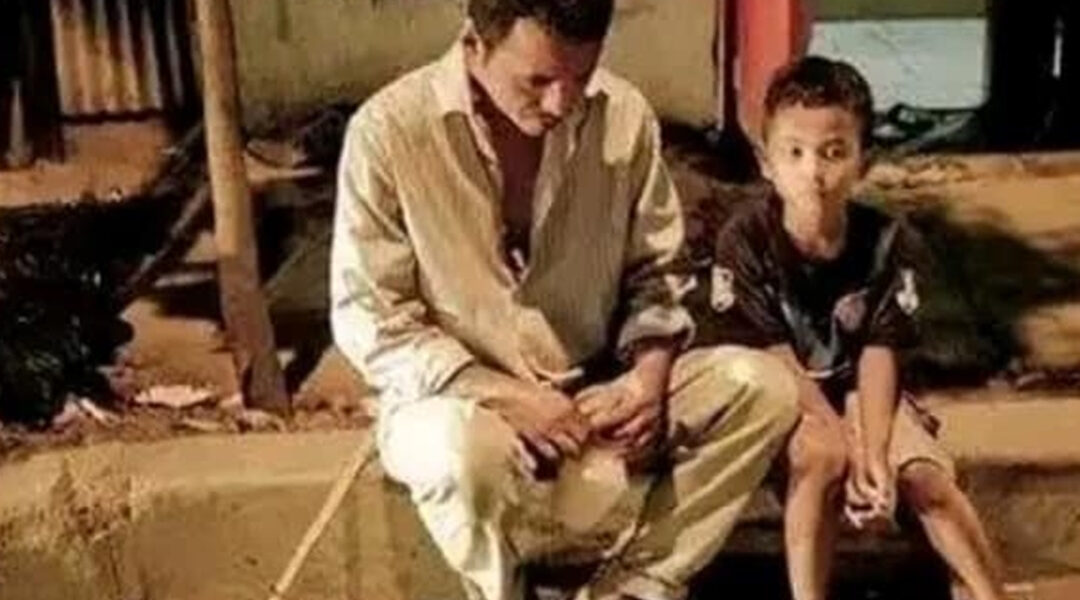
Every afternoon, as the school team gathered for soccer practice, there was one boy who never missed a session. He wasn’t the most skilled, nor the fastest. In fact, no matter how hard he trained, he never made it into the starting eleven. He was always the one sitting on the bench, wearing the reserves’ jersey, waiting quietly for a chance that never came.
But there was something different about him. While others had parents who occasionally showed up for a match or two, this boy’s father was always there. He would take his usual spot at the far end of the field, sitting quietly, watching—or so everyone thought. Day after day, rain or shine, the boy practiced, and his father waited. It became a routine so constant that people stopped noticing it.
When the tournament began, the boy was there, as always, for practice. But when the quarterfinals came, he didn’t show up. Nor was he there for the semifinals. Four days passed without him. The coach assumed he was ill or had simply given up hope. After all, he was not a regular player, and the stakes were getting higher.
Then came the finals. The stadium buzzed with excitement, the team bracing for the most important match of their season. Just before kickoff, the boy appeared. His face carried a weight the coach couldn’t quite place, but his eyes were determined.
He walked up to the coach and said quietly, “Coach, please… let me play today.”
The coach shook his head firmly. “Son, I can’t do that. You’re not ready. This is the finals. The reputation of our school is on the line, and I can’t take risks.”
But the boy didn’t back down. For the first time in all those years, he begged. “Coach, I promise I won’t let you down. Just this once, let me play. Please.”
The coach had never seen such desperation in him before. Against his better judgment, and with a sigh heavy with doubt, he nodded. “Alright, son. But remember, I am trusting you with the school’s pride. Don’t let me regret this.”
The whistle blew. The game began. And what happened next left everyone stunned.
The boy played like he had been waiting his whole life for this moment. Every time the ball touched his feet, he moved with lightning precision. He outran defenders, outmaneuvered opponents, and with every strike, the ball found the back of the net. Goal after goal, he carried his team forward.
The crowd roared. His teammates fed him the ball again and again, their initial hesitation dissolving into trust. By the end of the match, the boy had become the star, the hero who had singlehandedly led his school to a spectacular victory.
As the cheers echoed, the coach walked over, shaking his head in disbelief. “Son,” he said, his voice almost trembling, “how could I have been so wrong about you? I’ve never seen you play like this before. What happened? What changed?”
The boy looked at him with tears in his eyes and whispered, “Coach, today… my father was watching me.”
The coach frowned and turned instinctively toward the far end of the field—the spot where the boy’s father always sat. But it was empty. Confused, he asked, “But your father… he always sat there during practice. I don’t see anyone today.”
The boy’s voice cracked as he replied, “Coach, there’s something I never told you. My father… he was blind. He never saw me play a single match. Four days ago, he passed away. Today… is the first day he’s watching me from above.”
The coach’s eyes filled with tears, and in that moment, the victory on the scoreboard felt small compared to the victory in that boy’s heart. He hadn’t played for fame, for reputation, or even for himself. He had played for the one person who had believed in him all along—the father who could finally see him.




